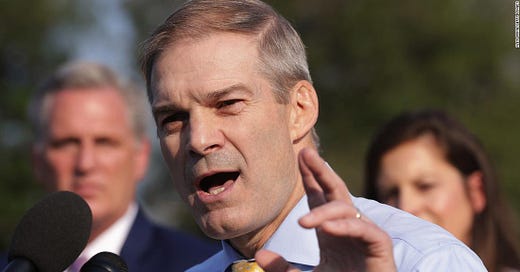
The day after Donald Trump won the 2024 presidential election, Afghanistan’s Taliban offered its congratulations to the American people for “not handing leadership of their great country to a woman.”
Taliban leaders expressed optimism that Trump’s election would enable a new chapter in the history of U.S-Taliban relations. They noted that it was Trump who suggested a new international order when he inked the February 29, 2020, Doha Agreement between the U.S. and the Taliban. That deal cut out the Afghan government and committed the U.S. to leave Afghanistan by May 2021, closing five military bases and ending economic sanctions on the Taliban. This paved the way for the U.S. evacuation of the country in August 2021 and the return of the Taliban to power.
The Taliban prohibits girls’ education past the sixth grade and recently banned the sound of women’s voices outside their homes.
In Russia, Russian thinker Alexander Dugin explained the dramatic global impact of Trump’s win. “We have won,” Dugin said. “The world will be never ever like before. Globalists have lost their final combat.” Dugin has made his reputation on his calls for an “anti-American revolution” and a new Russian empire built on “the rejection of [alliances of democratic nations surrounding the Atlantic], strategic control of the United States, and the rejection of the supremacy of economic, liberal market values,” as well as reestablishing traditional family structures with strict gender roles.
Maxim Trudolyubov of the Wilson Center, a nonpartisan foreign affairs think tank, suggested Friday that Putin’s long-term goal of weakening the U.S. has made him more interested in dividing Americans than in any one candidate.
Indeed, rather than backing Trump wholeheartedly, Russian president Vladimir Putin has been undercutting him. He did not comment on Trump’s election until Thursday, when he said that the power of liberal democracies over world affairs is “irrevocably disappearing.” Although Ellen Nakashima, John Hudson, and Josh Dawsey of the Washington Post reported that Trump and Putin had spoken on Thursday, Putin denied such a call as “pure fiction.”
Exacerbating America’s internal divisions and demonstrating dominance over both the U.S. and Trump might explain why after Trump became president-elect, laughing Russian media figures showed viewers nude pictures of Trump’s third wife, Melania, taken during her modeling career.
In an interview, Putin’s presidential aide Nikolay Patrushev said today: "To achieve success in the election, Donald Trump relied on certain forces to which he has corresponding obligations. As a responsible person, he will be obliged to fulfill them." Meanwhile, U.S. and Ukrainian officials report that Russia has massed 50,000 soldiers, including North Korean soldiers, to reclaim territory in the Kursk region of Russia taken this year by Ukrainian forces.
Trump claims to have talked to about seventy world leaders since his reelection but has declined to go through the usual channels of the State Department. This illustrates his determination to reorganize the federal government around himself rather than its normal operations but leaves him—and the United States—vulnerable to misstatements and misunderstandings.
The domestic effects of Trump’s victory also reveal confusion, both within the Republican Party and within national politics. Voters elected Trump and his running mate, Ohio senator J.D. Vance, but it’s hard to miss that billionaire Elon Musk, who backed Trump’s 2024 campaign financially, seems to be “Trump’s shadow vice-president,” as Nick Robins-Early of The Guardian put it. Sources told CNN’s Kaitlan Collins that Musk has been a constant presence at Mar-a-Lago since the election, sitting in on phone calls with foreign leaders and weighing in on staffing decisions. Yesterday at Mar-a-Lago, Musk met with the chief executive officer of the right-wing media channel Newsmax.
Exactly who is in control of the party is unclear, and in the short term that question is playing out over the Senate’s choice of a successor to minority leader Mitch McConnell (R-KY). In the new Congress, this Republican leader will become Senate majority leader, thereby gaining the power to control the Senate calendar and decide which bills get taken up and which do not.
Trump controls the majority of Republicans in the House, but he did not control Senate Republicans when McConnell led them. Now he wants to put Florida senator Rick Scott into the leadership role, but Republicans aligned with McConnell and the pre-2016 party want John Thune (R-SD) or John Cornyn (R-TX). There are major struggles taking place over the choice. Today Musk posted on social media his support for Scott. Other MAGA leaders fell in line, with media figure Benny Johnson—recently revealed to be on Russia’s payroll—urging his followers to target senators backing Thune or Cornyn.
Rachael Bade and Eugene Daniels of Politico Playbook suggested that this pressure would backfire, especially since many senators dislike Scott for his unsuccessful leadership of the National Republican Senatorial Committee that works to elect Republicans to the Senate.
Trump has also tried to sideline senators by demanding they abandon one of their key constitutional roles: that of advice and consent to a president’s appointment of top administration figures. Although Republicans will command a majority in the Senate, Trump is evidently concerned he cannot get some of his appointees through, so has demanded that Republicans agree to let him make recess appointments without going through the usual process of constitutionally mandated advice and consent.
Trump has also demanded that Republicans stop Democrats from making any judicial appointments in the next months, although Republicans continued to approve his nominees after voters elected President Joe Biden in 2020. Indeed, Judge Aileen Cannon, who let Trump off the hook for his retention of classified documents, was approved after Trump had lost the election.
All this jockeying comes amid the fact that while Trump is claiming a mandate from his election, in fact the vote was anything but a landslide. While votes are still being counted, Trump seems to have won by fewer than two percentage points in a cycle where incumbents across the globe lost. This appears to be the smallest popular vote margin for a winning candidate since Richard Nixon won in 1968.
While voters elected Trump, they also backed Democratic policies. In seven states, voters enshrined abortion rights in their constitutions. Two Republican-dominated states raised their minimum wage to $15 an hour; three enshrined mandated paid leave. In exit polls last week, sixty-five percent of voters said they want abortion to remain legal, and fifty-six percent said they want undocumented immigrants to have a chance to apply for legal status.
The gap between what Trump has promised MAGA supporters and what voters want is creating confusion in national politics. How can Trump deliver the national abortion ban MAGAs want when sixty-five percent of voters want abortion rights? How can he deport all undocumented immigrants, including those who have been here for decades and integrated into their communities, while his own voters say they want undocumented immigrants to have a path to citizenship?
Trump’s people have repeatedly expressed their opinion that Trump was stopped from putting the full MAGA agenda into place because he did not move quickly enough in his first term. They have vowed they will not make that mistake again. But the fast imposition of their extremist policies runs the risk of alienating the more moderate voters who just put them in power.
In September, as the Taliban enforced new rules on women in Afghanistan, they also began to target Afghan men. New laws mandated that men stop wearing western jeans, stop cutting their hair and beards in western ways, and stop looking at women other than their wives or female relatives. Religious morality officers are knocking on the doors of those who haven’t recently attended mosque to remind them they can be tried and sentenced for repeated nonattendance, and government employees are afraid they’ll be fired if they don’t grow their beards. According to Rick Noack of the Washington Post, such restrictions surprised men, who were accustomed to enjoying power in their society. Some have been wondering if they should have spoken up to defend the freedoms of their wives and daughters.
One man who had supported the Taliban said he now feels bullied. “We all are practicing Muslims and know what is mandatory or not. But it’s unacceptable to use force on us,” he said. Speaking on the condition of anonymity because he feared drawing the attention of the regime, another man from Kabul said: “If men had raised their voices, we might also be in a different situation now.”
—
Notes:
https://www.distractify.com/p/did-the-taliban-congratulate-trump
https://www.washingtonpost.com/opinions/2024/01/16/afghanistan-child-brides/
https://tec.fsi.stanford.edu/docs/aleksandr-dugins-foundations-geopolitics
https://www.wilsoncenter.org/blog-post/us-right-wing-media-embrace-russias-far-right-ideologue
https://www.washingtonpost.com/world/2024/11/07/russia-putin-reaction-us-election/
https://www.washingtonpost.com/national-security/2024/11/10/trump-putin-phone-call-ukraine/
https://www.wilsoncenter.org/blog-post/kremlin-was-hoping-division-america-not-victory-one-candidate
https://www.theguardian.com/technology/2024/nov/09/elon-musk-trump-administration
https://www.politico.com/playbook
https://www.washingtonpost.com/politics/2024/11/10/trump-rick-scott-senate-cornyn-thune-mcconnell/
https://www.nytimes.com/2024/11/10/us/politics/russia-north-korea-troops-ukraine.html
https://www.washingtonpost.com/world/2024/09/22/afghanistan-taliban-restrictions-men-beards/
https://www.washingtonpost.com/opinions/2024/11/11/trump-victory-red-wave/
X:
marlene4719/status/1855349954849714402
brianstelter/status/1855943054693204110
JuliaDavisNews/status/1856121278597320825
kbandersen/status/1855756165252042922
mehdirhasan/status/1855695380182122520
Bluesky:










We see you drawing parallels between the Taliban and the incoming administration. Raise your voices, everyone who can, before you too are silenced!
These are trying days for many of us, and I especially think of you during this time. Thank you for giving so much of yourself.